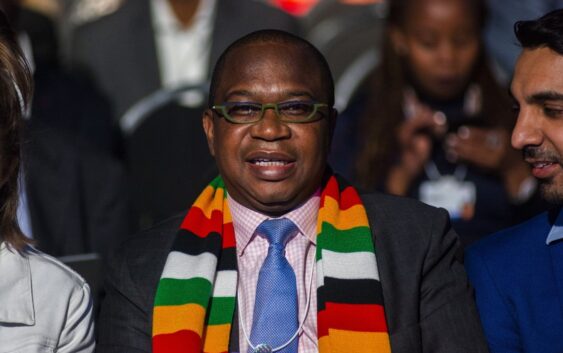- MPILO HOSPITAL IN NEEDS OF MASSIVE INFRASTRUCTURAL CHANGE IN ZIMBABWE
- HOW MDCB BAIL OUT BOSTWANA MINERGY OVER LOST OF COAL PRODUCTION
- WHY ACCESS TO WATER IS STILL A MAJOR ISSUE IN AFRICA
- PRE DEVELOPMENT SET TO UNHELD PROMISE OF HADABA PROJECT DESPITE SEVERAL SETBACK IN EGYPT
- WHY MOROCCO WANT TO CUT ENERGY DEPENDENCE FROM SPAIN
ZIMBABWE’S FINANCE MINISTER ENTICES INTERNATIONAL INVESTORS

Zimbabwe’s Minister of Finance and Economic Development, Prof. Mthuli Ncube publishes an article about his achievements and vision for Zimbabwe.
Zimbabwe has turned a corner. And whilst across the world the past year has been focused on closing – from lockdowns to closed borders – Zimbabwe continues to focus on opening up its economy, democracy and media space.
For many in Europe, Zimbabwe is a faraway land, tarnished by years of mismanagement and a distinct absence of freedom. But the last few years tell a truly different story. A story of reform. A story of renewal.
In 2018, the new dispensation was ushered in through the freest, fairest, and most credible and peaceful elections in Zimbabwe’s history. Following that election, Zimbabwe continued to open up its political and media spaces, repealing antiquated laws – a key concern of Washington and Brussels – and releasing licenses for new independent TV and radio stations, part of a wider opening of the media.
Internationally, Zimbabwe is also opening up. President Mnangagwa has called to open a new chapter with former foes. As the reform process continues, we are looking forward to working in constant communication and collaboration with our friends – both new and old – as a responsible player and partner in the community of nations.
Likewise, on the economic front, we are witnessing a new and novel opening. The vaccines we have brought in will hopefully enable us to re-open our economy, carefully and responsibly, with an eye on a speedy return to economic activity. However, our economic optimism stretches far beyond the vaccination drive, as three years of broad economic reforms begin to bear fruit.
Our budget for 2021 projected that our economy will grow by 7.4% in 2021, a significant rebound from the COVID induced 4.1% contraction in 2020. Even the more conservative IMF projection of 4.2% growth represents a notable increase and a real vote of confidence in our financial management from one of the most important global financial institutions. Another shot in the arm for the people of Zimbabwe.
As Minister of Finance, I have worked hard to get wasteful spending down and revenues up. Projections for government revenue for 2021 are more than double the revenues of 2020. Even in this most challenging of times, Zimbabwe has maintained a balanced budget, which is being channelled to the most vulnerable in our society, and urgent infrastructure projects.
Perhaps the most challenging issue, however, is that of inflation. With the floating of a new currency, inflation has inevitably been a constant battle. On a month-by-month basis, February’s figure of 3.45% compares well with the previous month’s 5.43%. The battle is not yet won, but we are heading in the right direction. Thanks to sensible economics, and careful monetary and fiscal policy, we have avoided a return to the hyper-inflation predicted by many so-called ‘experts’ not so long ago.
Since taking the reins, we have even achieved a budget surplus for the first time in recent Zimbabwean history. Perhaps most importantly, we have increased the supply of locally manufactured goods; rising to 45% on market shelves from just 5% in 2017. For the first time in recent years, exports exceeded imports, creating a balance of payments surplus.
When the reforms caused short-term uncertainty and upheaval, there were voices calling for us to shelve our agenda and return to how things were. And just with the political and media reforms, there were many naysayers. Some said it was too quick. Some said it was too liberal.
But we must continue to resist this institutional inertia and embrace those who are willing to open up further. The time for reform is now. We are in the era of the entrepreneur, and the Government must act likewise.
Whilst we celebrate the great progress of recent years, we know we have much more work to do. We, therefore, call on our friends around the world to join us. Work with Zimbabwe as we continue to build a stronger and more open economy, a more open political system, and a more open society for all.
Source: NewEurope.eu

